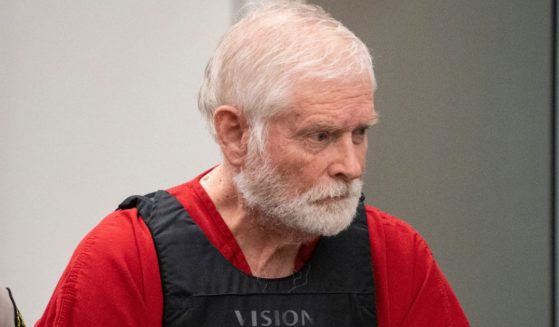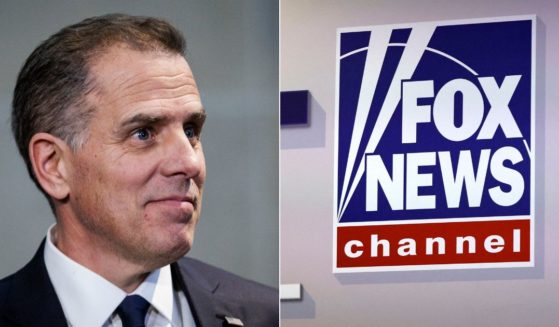Ben Franklin Stunned by Great Revival's Impact: People Went From Indifferent to Fervent Believers
For any discouraged about the current state of American society, Founding Father Benjamin Franklin has left us a firsthand account of the impact a Christian awakening can have on a culture.
Franklin is known as among the least traditionally Christian of the Founders — seen more as a man of reason, a man of the Enlightenment — but he did believe there is a God who governs over the affairs of this world.
He also believed the principles found in Christianity were good for the health of a society, writing that Jesus Christ’s “System of Morals and his Religion, as he left them to us, [is] the best the World ever saw or is likely to see.”
The Great Awakening that happened during Franklin’s younger adult years (primarily his 30s and 40s) was an interdenominational Christian revival that began in the 1730s in New England and spread throughout the 13 colonies over the next decade.
It was fueled by the itinerant preaching of evangelists like George Whitefield, who became a friend and business partner of Franklin. The Philadelphia resident published compilations of Whitefield’s sermons and frequently covered his comings and goings in the Pennsylvania Gazette.
Franklin also wrote about Whitefield, the Billy Graham of the day, in his autobiography.
“In 1739, arrived among us from England the Rev. Mr. Whitefield, who had made himself remarkable there as an itinerant preacher. He was at first permitted to preach in some of our churches; but the clergy taking a dislike to him, soon refused him their pulpits and he was obliged to preach in the fields,” Franklin recounted.
“The multitudes of all sects and denominations that attended his sermons were enormous and it was [a] matter of speculation to me who was one of the number, to observe the extraordinary influence of his oratory on his hearers, and how much they admired and respected him,” he added.
#OTD May 3, 1738
English preacher George Whitefield, 23, first arrived in America. In all, Whitefield crossed the Atlantic 13 times, and died in Massachusetts in 1770, during his seventh visit.
In his lifetime, Whitefield preached at least 18,000 times to approx 10M hearers. pic.twitter.com/4P6mxWPj0z— ☧ Today in Christian History (@HistoricalRook) May 3, 2023
Franklin shared with some seeming amusement how Whitefield’s preaching convinced him to give a rather substantial offering during one of the evangelist’s meetings.
“I perceived he intended to finish with a collection, and I silently resolved he should get nothing from me,” Franklin wrote.
“I had in my pocket a handful of copper money, three or four silver dollars, and five pistoles in Gold. As he proceeded I began to soften, and concluded to give the coppers,” he explained.
“Another stroke of his oratory made me ashamed of that, and determined me to give the silver; and he finished so admirably, that I emptied my pocket wholly into the collector’s dish, gold and all,” Franklin concluded.
Whitefield founded an orphanage in Georgia in 1740, which may have part of his offering appeal.
Franklin’s scientific mind was at work while he listened to Whitefield one day in Philadelphia.
“He had a loud and clear voice, and articulated his words and sentences so perfectly that he might be heard and understood at a great Distance, especially as his auditors, however numerous, observed the most exact silence,” Franklin recalled.
“He preached one evening from the top of the Court House steps, which are in the middle of Market Street, and on the West Side of Second Street which crosses it at right angles,” the Philadelphia resident wrote.
Franklin related how both streets were filled with listeners and that he was among the “hindmost” part of the crowd on Market Street.
“I had the curiosity to learn how far he could be heard, by retiring backwards down the Street towards the River; and I found his voice distinct till I came near Front Street, when some noise in that Street, obscured it,” he chronicled.
Franklin then imagined a semicircle, the radius of which was his distance from Whitefield, and calculated “he might well be heard by more than thirty thousand” people.
The founder noted that squared with newspaper accounts of Whitefield having preached to 25,000 people in open fields.
Here is @jaredcwilson reading George Whitefield at the site where Whitefield preached, in a field, from a rock to 500, Oct 1740 (283 yrs ago). pic.twitter.com/DQNoLleRWl
— Jason G. Duesing (@JGDuesing) October 10, 2023
Franklin marveled at the effect that Whitefield and the other Great Awakening preachers had on the population.
“It was wonderful to see the change soon made in the manners of our Inhabitants; from being thoughtless or indifferent about religion, it seemed as if all the world were growing religious; so that one could not walk through the town in an evening without hearing psalms sung in different families of every street,” he wrote.
Ché Ahn — pastor of Harvest Rock Church in Pasadena, California, and head of Harvest International Ministry — believes that type of awakening is possible and needed in our day.
In his book “Turning Our Nation Back to God: Through History Revival,” Ahn cites the Great Awakening as one of the instances in U.S. history when a Christian revival changed the society because it united the colonies in a shared experience and gave them the courage to trust God and declare their independence from Great Britain.
“Because [Whitefield] was also preaching liberty and freedom … it led, I believe, to the Declaration of Independence in 1776,” Ahn told The Western Journal.
Franklin, in fact, was on the committee of five in the Continental Congress that drafted the Declaration, which appeals to the laws of God and expresses the signers’ belief that he governs justly over the affairs of this world.
The Second Great Awakening in the U.S., which began around 1800 and lasted until the 1830s, helped launch the abolition movement that led to the end of slavery, the pastor also argued.
“And so revival led to the transformation of America, ending slavery and giving rights to all people,” Ahn said. “And so you see the foundation of revival leading to reformation of society, reforming institutions like the government, education, obviously, business. Every sector of society was transformed.”
The Californian became a Christian during the last great spiritual awakening in U.S. history, the Jesus People movement of the late 1960s and early 1970s, when perhaps millions came to faith.
💀 🏴☠️ PIRATE’S COVE
The waters of baptism signify death to living for ourself, and raising to new life with Christ.
Here are some pictures from the largest baptism in US history which took place yesterday at Pirates Cove, the historic site of the Jesus Movement in Southern… pic.twitter.com/cWyW677SlW
— Matt Brown (@evangelistmatt) July 9, 2023
Ahn lamented that a reformation of society did not follow, due to “bad eschatology,” i.e., teaching about the end times described in the Bible.
“So that eschatology is that things will get worse and then Jesus rapture us out of here,” he said. The U.S. was going through a turbulent time with Vietnam War protests, race riots and the recent assassinations of John and Bobby Kennedy and Martin Luther King, Jr., and the tensions of the Cold War with the Soviet Union.
What a difference 5 years makes. In 1966, Time asked, “Is God Dead?,” then in 1971 Time ran “The Jesus Revolution” cover after revival had broken out nationwide during the #Jesus movement.
Is the same happening in our day? #Asbury had a big-time revival back then too. pic.twitter.com/vIohLk3t5S
— Randy DeSoto (@RandyDeSoto) February 21, 2023
That, coupled with the rebirth of Israel in 1948 and other events on the world stage, led many to believe the end was near, and the church should be solely focused on saving souls before Christ’s return.
“That is not the theology of the early church fathers or the reformers of 1517 [Protestant Reformation] or the Great Awakening of [Charles] Wesley, Whitefield or Charles Finney in the Second Great Awakening in 1801,” Ahn said. “They believed that you could transform America.”
Franklin, ever the pragmatist who always wanted to see society changed for the better, no doubt would approve of this view.
Truth and Accuracy
We are committed to truth and accuracy in all of our journalism. Read our editorial standards.












